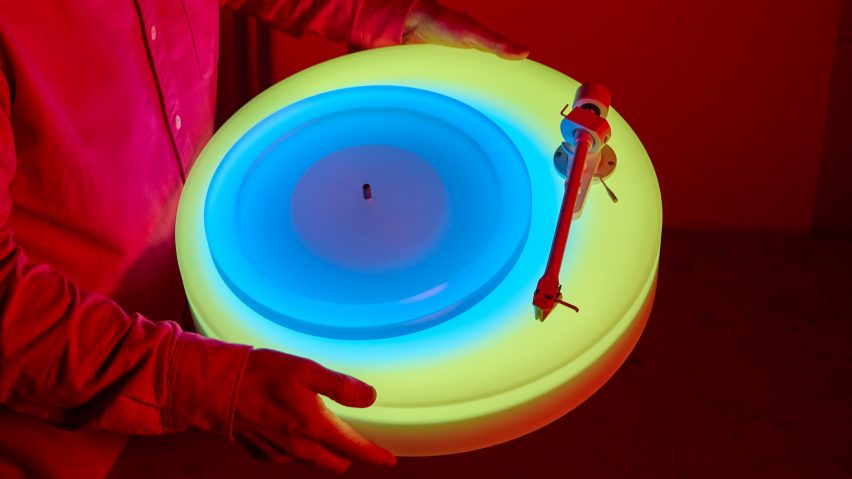
Brian Eno's light-up turntable changes colour in "complex and unpredictable" patterns
Ambient music pioneer Brian Eno is exhibiting an updated version of his illuminated record player composed of two eccentric Perspex circles at London's Paul Stolper Gallery.
Like its predecessor, released in 2021, Turntable II consists of a platter and base made of translucent acrylic, each fitted with LED lights that are programmed to change colour independently.
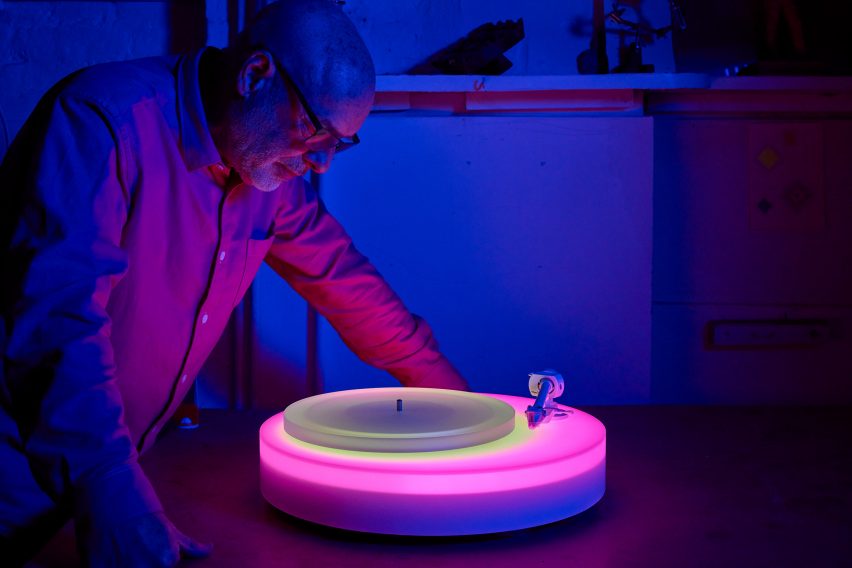
Thousands of tiny holes drilled into the plastic allow light to emanate from the record player, creating gradients where the two layers overlap.
The colour of the lights and the speed at which they change is programmed to change randomly, creating a nearly endless spectrum of "colourscapes".
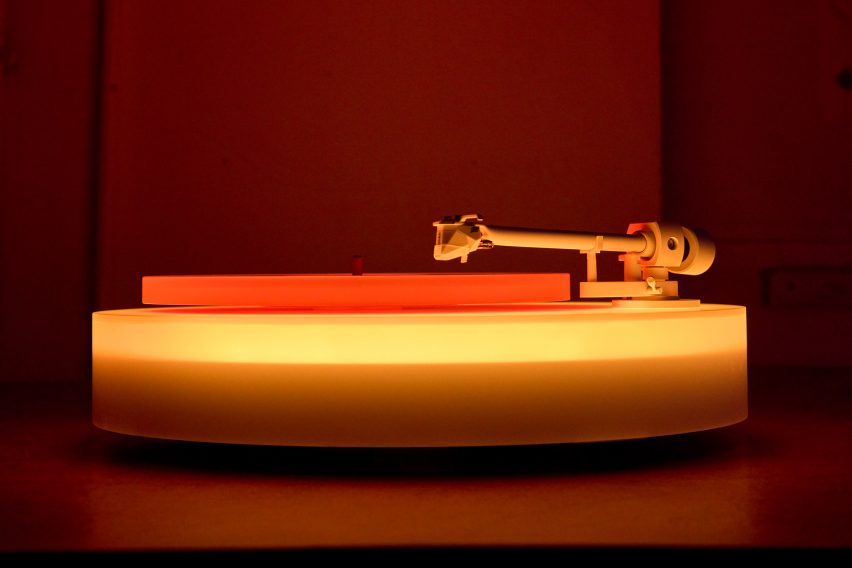
"Several overlapping light cycles will keep producing different colour balances and blends – and different shadow formations that slowly evolve and never exactly repeat," Eno said.
"I've never ceased to be fascinated by the amazingly intricate, complex and unpredictable results produced by simple deterministic systems," he continued.
"Out of simplicity, complexity arises. That is for me the most incredible idea of evolution theory."
The turntable is distinguished from its forebearer by a matt-white tonearm and a circular base, which echoes the shape of the platter holding the vinyl record above.
Produced as a limited edition of 150, the record player is on display at Paul Stolper Gallery in London's Bloomsbury until 9 March 2024.
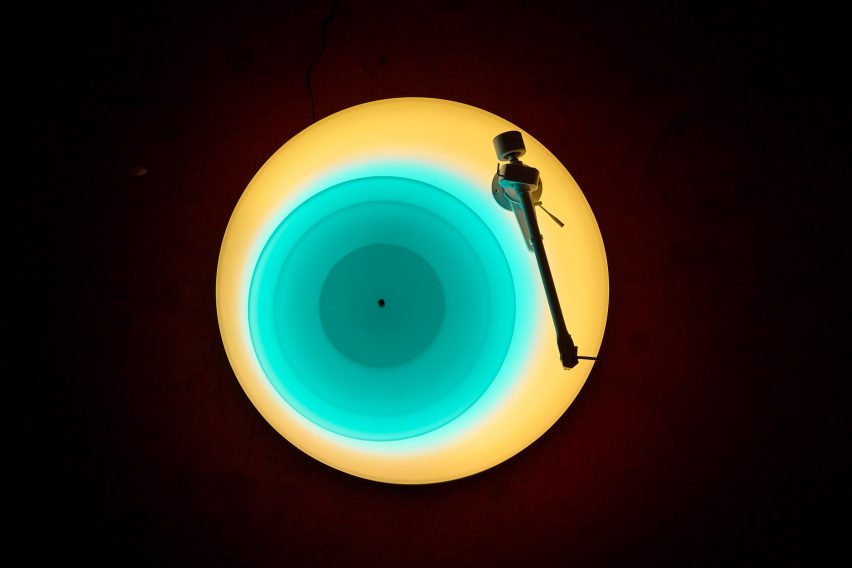
Eno, who is credited as one of the founding fathers of ambient music, first started experimenting with combining light and sound while attending art school in the late 1960s.
Since then, he has created a series of light box artworks for Paul Stolper and collaborated with British architect Asif Khan on the UK's energy-themed pavilion at the Astana Expo 2017 in Kazakhstan,
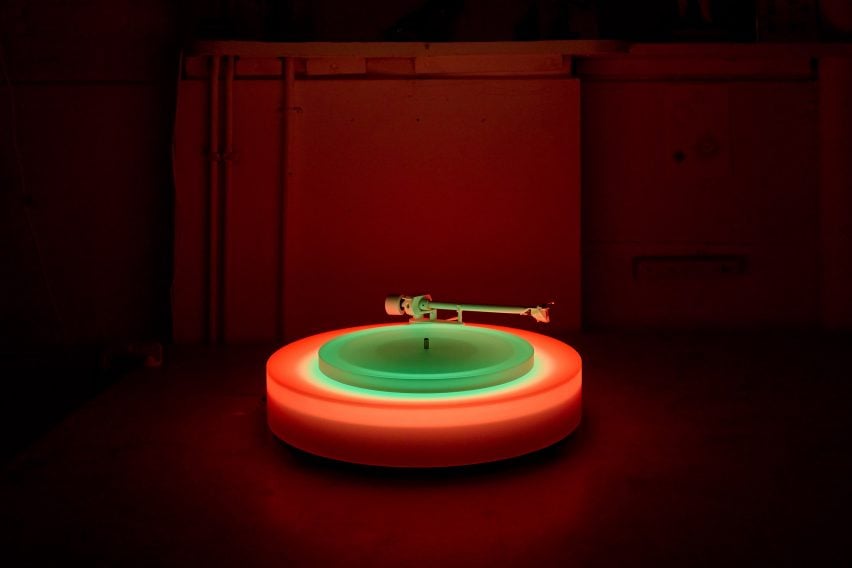
"I started using light and video because I wanted to make visual experiences that had some of the qualities of musical experiences – that's to say, that existed and changed in time," Eno explained.
"I wanted to make very slowly changing paintings, to blur the edges that separate those different forms."
The photography is Luke Walker.